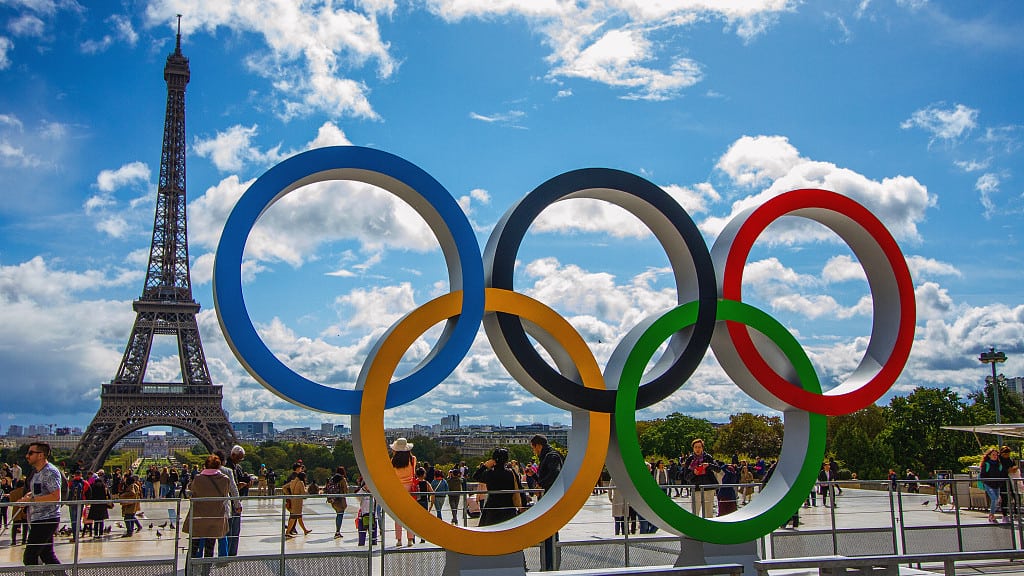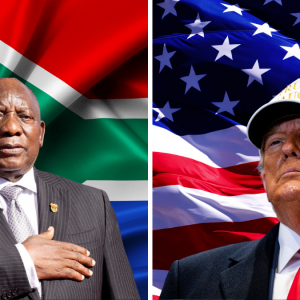“There is no such thing as neutrality when a war like this is going on, it is obvious that any neutral flag of Russian athletes is stained with blood.” – Volodymyr Zelensky
In succinct unity with Ukraine, 30 countries including the United States are threatening to pull out of the 2024 Summer Olympic Games being held in Paris, France. As the much anticipated international games draw closer, political controversy is sprouting up everywhere over Russia and Belarus’ participation in the international competition, stemming from anger over the Russo-Ukrainian War.
The Current State of Affairs
On January 25 of this year, the International Olympic Committee [IOC] released a statement allowing Russian and Belarusian athletes to participate in the upcoming games with the stipulation that they only compete under a neutral flag. This statement comes as a direct response to Ukrainian President Volodymyr Zelenskyy’s demand for the current President of the IOC, Thomas Bach, to ban these athletes from participating in any Olympic event in 2024.
To which Bach has responded with claims that the IOC “is not on the wrong side of history” and is instead exploring alternative options to the issue which will satisfy everyone involved. Zelenskyy additionally has called on current French President Emmanuel Macron to support Ukraine in their efforts as the games are set to be held in Paris, France in 2024. Zelenskyy argues that allowing Russian participation in the games would amount to an affront due to their unwarranted and relentless attacks on the country of Ukraine.
Since then, countries including the U.S., Canada, U.K., Italy, Spain, Ireland, New Zealand, and Japan, to name a few of the 30 countries, have joined Ukraine in its protest against the IOC threatening to pull out of the games if Russian and Belarusian athletes are allowed to participate, even under a neutral flag. These countries have recognized the severity of the ongoing Russo-Ukrainian War and have serious doubts that the Russian and Belarusian athletes will remain neutral throughout the events although they do not particularly state why they possess these doubts. All of this is outlined in a joint statement released by the British government a few weeks ago on February 21.
Currently, there has been no official response from Russia or Belarus on the matter—almost as if they are allowing the IOC to argue on their behalf. The question must be asked: if Russian and Belarusian athletes are allowed to compete in the 2024 Olympic Games, will the petitioning countries truly refuse to participate? On one hand, it doesn’t seem fair to punish the professional athletes of a country, who have been training their entire lives for moments like the Summer Olympics, for something that their leaders are doing. Under this line of thought, the decision of the IOC to allow Russian and Belarusian athletes to compete under neutral flags would ensure fairness. However, this does not mean Ukraine’s argument is not completely invalid either. The country is evidently hurting from the unwarranted, violent actions that Russia is taking. It can be understood why Ukraine and its fellow supporting countries feel the way they do. Amongst the dozens of sanctions placed against Russia and Belarus, a ban from the international games is just another penalty against Russia in an effort to showcase how isolated the country really is in its war of aggression.
Two Differing Sides to the Same Story
Two sides have taken form on this issue: Ukraine and its supporting countries, and the IOC along with the United Nations (U.N). The Ukrainian side of the conflict is calling for the complete banishment of not only Russian but Belarusian athletes from the 2024 Paris Games based on their current uncalled-for violence, and their breach of the Olympic Truce (the call for Belarus’ ban is due to their cooperation with Russia, allowing Russian troops to utilize Belarusian land for war purposes against Ukraine). This side has made it clear they do not want any participation from these countries, even under a neutral flag given their hostility toward Ukraine. If Russian and Belarusian athletes are allowed to participate, all 30 countries supporting Ukraine threatened a boycott of the Olympics. If this occurs, it could prove highly problematic for the 2024 Games; many major sporting powers such as the U.S., U.K., Canada, Japan, Italy, and Spain are among those who have voiced their support for Ukraine. However, this stand has been taken a step further with these countries claiming their stance stems from holistic support of human rights. They make the claim that if the IOC were to allow for these countries’ participation, they would essentially be supporting the Russo-Ukrainian War.
This, of course, is not what the IOC is doing at all. It is evident that the organization is simply attempting to strike a balance between not discriminating against athletes due to nationality or making them suffer unjustly for the actions of their country and satisfying the demands made by Ukraine and its supporting countries.
Is the IOC Being Hypocritical?
The mission statement of the IOC and the Olympic Games, as cited on their own website, is “to place sport at the service of the harmonious development of humankind, with a view to promoting a peaceful society concerned with the preservation of human dignity.” Their mission statement seems to have the ability to be equally applied to both sides of the conflict. On the one hand, if the IOC were to completely prevent Russian and Belarusian athletes from participating in the 2024 Olympic Games, they would be acting against their own mission statement to “place sport at the service of the harmonious development of humankind.” Adversely, if the IOC were to permit these athletes to join in on the games, they would be violating the portion of their own mission statement anchored at “promoting a peaceful society concerned with the preservation of human dignity.”
The IOC faces a no-win situation. The organization has to make a pivotal decision, one which could potentially result in many countries losing faith in the Olympics and its integrity, no matter which side it supports. An international tradition with the intention to bring all people together in harmony faces a reckoning with its mission not faced since the Cold War. Although the IOC is being viewed in some sense as hypocritical for currently allowing both Russian and Belarusian athletes to participate even under a neutral flag, given that it goes directly against their own mission statement, it seems that instead they should be viewed as cautious and aware of the dire situation unfolding in front of them with the goal of compromise and unity at the 2024 Olympic Games in Paris.
U.N. Intervention
Whether the U.N., serving as an international governing body and platform for countries to resolve disputes, should become involved in this conflict has been called into question regarding the potential discrimination accusations made against the IOC. It seems possible for the U.N.’s opinions to persuade some minds within the IOC given the substantial role it plays on the international stage and its long history. At the beginning of February, Alexandria Xanthaki and Ashwini K.P., two U.N. experts who serve as a part of the Human Rights Council, commended the IOC’s reversal of their original decision to ban Russian and Belarusian athletes. Both cited the need for the Olympic community to adhere to the current Olympic Charter “and more widely international human rights norms prohibiting discrimination.”
These experts have made it undeniably clear that they, along with the U.N., understand the difficult position Ukraine is put in however it is their firm belief that no athletes should be required to take sides in the matter. The Russian and Belarusian athletes who do not support the current Russo-Ukrainian War should be allowed to participate in the 2024 games. These experts further claim that “the same rules must apply to all athletes, whatever their nationality.” It has been clearly iterated in the statement issued by the U.N. experts that “discrimination, hostility or violence shall be prohibited”, this includes and is not limited to nationality, race, and religion.
It seems that with this statement, the U.N. has indeed swayed the opinions of the IOC, with more current statements shifting toward a more aggressive take on Russian and Belarusian involvement in the 2024 Summer Olympics. Shortly after the U.N.’s statement was released, the IOC Executive Board published their own more strongly worded statement on the issue than they have in the past officially recommending absolutely no Olympic participation or attendance of Russian and Belarusian athletes and country officials in order to protect the integrity of the games. The statement additionally encourages other international sports federations to adopt the same procedures, calls for immediate cancellation of all current or potential international events being held in Russia, and outlines a support fund for Ukrainian athletes and their families. Lastly, the statement repeals three Olympic gold medals from Russia as yet another punishment for the country. It shows support for those Russian and Belarusian athletes who are actively calling on their own countries for peace.
Looking Towards the Future of the 2024 Olympic Games
Although there has not been any official ban against Russian or Belarusian athletes at this moment of publication, it can be inferred that the IOC will either enforce a ban before the start of the 2024 Summer Olympics in Paris, France ensuring the attendance of all 30 countries and in support of Ukraine. Otherwise, they will stick with their current statement and allow the athletes in question to participate under a neutral flag and risk the loss of the current 30 countries in support of Ukraine. There is a possibility that if enough countries pull out of the 2024 games, it may not be plausible to hold the games. Another potential outcome could be the loss of faith in the Olympics as the games are intended to bring people and countries together, especially in times of conflict. If this is to occur there is no telling what the future of the Olympics could be or if this could set a precedent for countries to possess a more optional view of future Olympic Games which could arguably cause serious damage to the IOC, the idea behind the Olympics, and what the games truly stand for.
Featured Image: GQ Magazine






Be First to Comment